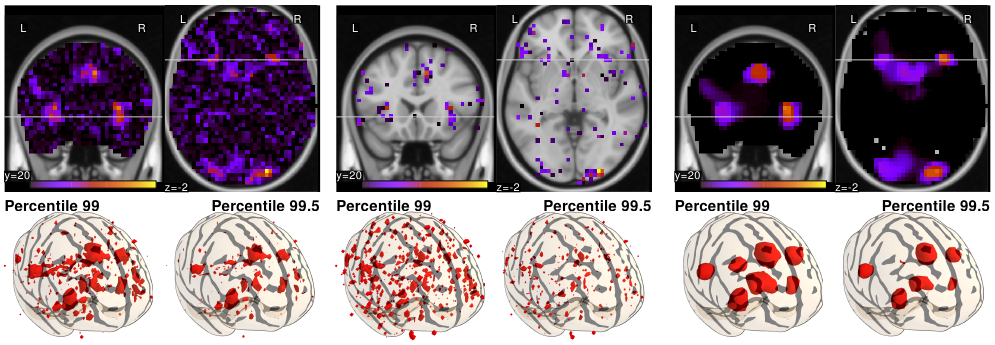Section: New Results
Identifying predictive regions from fMRI with TV-1 prior
Participants : Gaël Varoquaux [Correspondant] , Bertrand Thirion, Alexandre Gramfort.
Decoding, i.e. predicting stimulus related quantities from functional brain images, is a powerful tool to demonstrate differences between brain activity across conditions. However, unlike standard brain mapping, it offers no guaranties on the localization of this information. Here, we consider decoding as a statistical estimation problem and show that injecting a spatial segmentation prior leads to unmatched performance in recovering predictive regions. Specifically, we use 1 penalization to set voxels to zero and Total-Variation (TV) penalization to segment regions. Our contribution is two-fold. On the one hand, we show via extensive experiments that, amongst a large selection of decoding and brain-mapping strategies, TV+1 leads to best region recovery (see Fig. 8 ). On the other hand, we consider implementation issues related to this estimator. To tackle efficiently this joint prediction-segmentation problem we introduce a fast optimization algorithm based on a primal-dual approach. We also tackle automatic setting of hyper-parameters and fast computation of image operation on the irregular masks that arise in brain imaging.
|
More details can be found in [59] .



